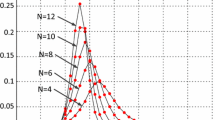Abstract.
Carrier phase ambiguity resolution is the key to fast and high-precision GNSS (Global Navigation Satellite System) kinematic positioning. Critical in the application of ambiguity resolution is the quality of the computed integer ambiguities. Unsuccessful ambiguity resolution, when passed unnoticed, will too often lead to unacceptable errors in the positioning results. Very high success rates are therefore required for ambiguity resolution to be reliable. Biases which are unaccounted for will lower the success rate and thus increase the chance of unsuccessful ambiguity resolution. The performance of integer ambiguity estimation in the presence of such biases is studied. Particular attention is given to integer rounding, integer bootstrapping and integer least squares. Lower and upper bounds, as well as an exact and easy-to-compute formula for the bias-affected success rate, are presented. These results will enable the evaluation of the bias robustness of ambiguity resolution.
Similar content being viewed by others
Author information
Authors and Affiliations
Additional information
Received: 28 September 2000 / Accepted: 29 March 2001
Rights and permissions
About this article
Cite this article
Teunissen, P. Integer estimation in the presence of biases. Journal of Geodesy 75, 399–407 (2001). https://doi.org/10.1007/s001900100191
Issue Date:
DOI: https://doi.org/10.1007/s001900100191




